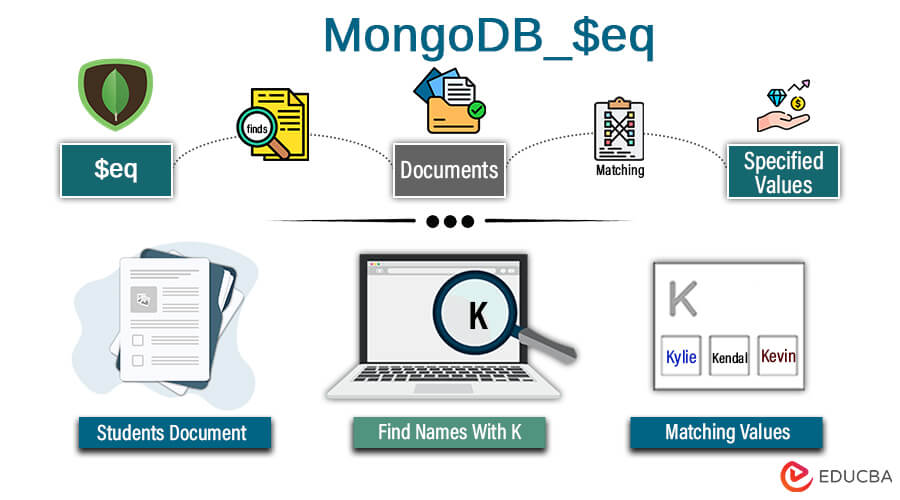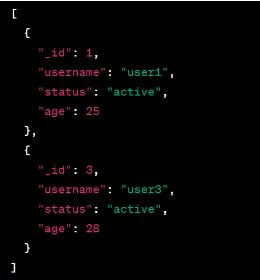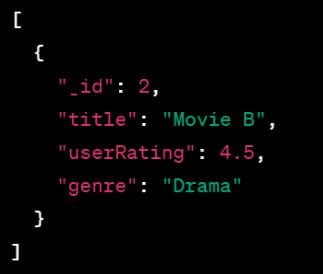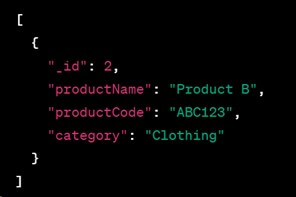Updated December 1, 2023
What is MongoDB $eq?
In MongoDB, the $eq operator provides a powerful querying tool by matching documents where a specific field equals a defined value. This operator enhances precision in data retrieval, allowing users to pinpoint exact matches within their datasets. Whether searching for particular values in strings, numbers, or other data types, $eq streamlines the querying process, contributing to the flexibility and efficiency of MongoDB as a NoSQL database solution.
Table of Contents
Key Takeaways
- MongoDB’s $eq operator ensures precise document matching based on specified field values.
- It is ideal for querying exact matches and enhancing data accuracy.
- Versatile across different data types, from strings to numbers.
- Simplifies the retrieval process, improving efficiency in querying tasks.
- Strengthens MongoDB’s role as a flexible NoSQL database solution.
Why is the $eq operator used in MongoDB?
The $eq operator in MongoDB facilitates precise document retrieval within a collection. Its primary purpose is filtering documents where a specific field equals a given value. This operator is instrumental in constructing targeted queries and is particularly useful when an exact match is required.
Syntax:
{ field: { $eq: value } }The syntax is straightforward: “field” represents the document field to be compared, and “value” is the specific value to match. This concise structure streamlines the querying process, contributing to the ease of use for developers.
Parameters:
- field: The document field to be compared.
- $eq: The equality operator specifies that the field should equal the provided value.
- value: The exact value for comparison.
- Return Value: The $eq operator, when used in queries, returns documents where the specified field is equal to the given value. This provides a precise and filtered result set, enhancing the accuracy of data retrieval.
The $eq operator is a fundamental component of MongoDB’s querying capabilities, ensuring developers can efficiently pinpoint and retrieve specific information from their collections. Its simplicity and powerful functionality make it an indispensable tool for constructing targeted and accurate queries in MongoDB.
How to Use MongoDB $eq Operator?
Utilizing MongoDB’s $eq operator involves constructing queries that demand exact matches for a specified field. The operator is embedded within the query syntax to refine search criteria and enhance precision.
Example #1
Let’s consider a hypothetical MongoDB collection called “users” with documents that have various fields, including “status.” Here’s a sample input with three documents:
- Database: Examples
- Collection: users
- Document: Three documents that contain the details of the users.
Code:
[
{
"_id": 1,
"username": "user1",
"status": "active",
"age": 25
},
{
"_id": 2,
"username": "user2",
"status": "inactive",
"age": 30
},
{
"_id": 3,
"username": "user3",
"status": "active",
"age": 28
}
]Explanation:
Consider a scenario where we want to retrieve documents from a collection named “users” where the “status” field is precisely equal to “active.” The $eq operator facilitates this by filtering results to include only documents meeting this exact criterion.
Code:
db.users.find({ status: { $eq: "active" } })Now, let’s break down the query db.users.find({ status: { $eq: “active” } }) and see what it does:
- users.find: This is a MongoDB query to retrieve documents from the “users” collection.
- { status: { $eq: “active” } }: This is the query condition. It specifies that we want to find documents where the “status” field equals “active.”
Output:
In this example, “status” is the field under consideration, and the $eq operator ensures that only documents with a status equal to “active” are returned.
Example #2: Find Documents with Exact Match on Ratings
Let’s consider a hypothetical MongoDB collection called “movies” with documents that have various fields, including “userRating.” Here’s a sample input with three documents:
- Database: Examples
- Collection: movies
- Document: Three documents that contain the details of the movies.
Code:
[
{
"_id": 1,
"title": "Movie A",
"userRating": 4.2,
"genre": "Action"
},
{
"_id": 2,
"title": "Movie B",
"userRating": 4.5,
"genre": "Drama"
},
{
"_id": 3,
"title": "Movie C",
"userRating": 3.8,
"genre": "Comedy"
}
]Suppose you have a “movies” collection and want to retrieve films with a specific user rating of 4.5. You can use the $eq operator to filter documents based on the exact match of the “userRating” field:
Code:
db.movies.find({ userRating: { $eq: 4.5 } })Now, let’s break down the query db.movies.find({ userRating: { $eq: 4.5 } }) and see what it does:
- movies.find: This is a MongoDB query to retrieve documents from the “movies” collection.
- { userRating: { $eq: 4.5 } }: This is the query condition. It specifies that we want to find documents where the “userRating” field equals 4.5.
Output:
This query will return movies where the “userRating” is precisely equal to 4.5.
Example #3: Match Documents with Specific Product Codes
Let’s consider a hypothetical MongoDB collection called “products” with documents that have various fields, including “productCode.” Here’s a sample input with three documents:
- Database: Examples
- Collection: products
- Document: Three documents that contain the details of the products.
Code:
[
{
"_id": 1,
"productName": "Product A",
"productCode": "XYZ789",
"category": "Electronics"
},
{
"_id": 2,
"productName": "Product B",
"productCode": "ABC123",
"category": "Clothing"
},
{
"_id": 3,
"productName": "Product C",
"productCode": "DEF456",
"category": "Home & Garden"
}
]
In a “products” collection, you might have items with unique product codes, and you want to find a product with a specific code, for instance, “ABC123.” The $eq operator helps you achieve this:
Code:
db.products.find({ productCode: { $eq: "ABC123" } })Now, let’s break down the query db.products.find({ productCode: { $eq: “ABC123”} }) and see what it does:
- products.find: This is a MongoDB query to retrieve documents from the “products” collection.
- { productCode: { $eq: “ABC123” } }: This is the query condition. It specifies that we want to find documents where the “productCode” field equals “ABC123.”
Output:
This query retrieves documents from the “products” collection where the “productCode” field exactly matches “ABC123,” helping you pinpoint a specific product within your dataset.
The $eq operator simplifies the task of locating specific documents within a MongoDB collection, ensuring that only those meeting exact criteria are included in the query results. This capability enhances the accuracy and efficiency of data retrieval in MongoDB queries.
Performance Considerations
When working with MongoDB’s $eq operator, understanding its performance considerations is crucial for optimizing queries. While $eq is efficient for exact matches, there are factors to consider for enhancing overall performance.
- Index Usage: One key consideration is index usage. Utilizing indexes on fields involved in $eq operations significantly speeds up queries. MongoDB can leverage these indexes to swiftly locate and retrieve matching documents, minimizing the need for full collection scans.
- Data Distribution: Another aspect to bear in mind is the data distribution. If a significant portion of the dataset shares the same $eq value, MongoDB’s query planner might choose a collection scan over an index scan, impacting performance. In such cases, indexing on the queried field remains beneficial.
- Document Size: Additionally, the type of data being queried influences performance. While $eq excels in matching equality for various data types, its performance might differ based on the size and complexity of the documents. Large documents or those with deeply nested structures may experience varying query times.
- Caching Mechanism: Caching and memory play a role as well. Frequently queried $eq values can benefit from MongoDB’s caching mechanisms, reducing the time needed to retrieve matching documents.
Comparison of $eq with Other Database Technologies
| Section | $eq in MongoDB | Other Database Technologies |
| Querying Precision | Ensures exact matches with specified values, enhancing precision. | Varied approaches; some may require complex syntax for exact matches. |
| Syntax Simplicity | Concise syntax with { field: { $eq: value } }, user-friendly. | Syntax complexity varies and may involve more intricate structures. |
| Index Utilization | Efficient use of indexes for faster queries. | Index usage varies; it depends on the database’s indexing capabilities. |
| Data Type Flexibility | Works seamlessly across different data types. | Data type handling varies; some databases may have limitations. |
| Performance Optimization | Consideration of indexes crucial for optimal performance. | Optimization strategies depend on the database’s query execution plan. |
| Scalability | MongoDB’s horizontal scalability suits distributed environments. | Scalability approaches differ depending on the database architecture. |
| Community Support | Strong community support and extensive documentation. | The level of community support varies and may affect problem-solving speed. |
| Schema Flexibility | No rigid schema requirements; accommodates flexible document structures. | Schema flexibility varies; relational databases may have stricter schemas. |
MongoDB’s $eq operator stands out for its simplicity, precise querying capabilities, and efficient index usage. While other database technologies offer diverse approaches, the comparison highlights MongoDB’s syntax, scalability, and schema flexibility strengths, making it a robust choice for scenarios that demand ease of use and effective data retrieval.
Best Practices for Using $eq in MongoDB
Employing MongoDB’s $eq operator efficiently involves following best practices to ensure optimal performance and efficient querying.
- Indexing: Strategically apply indexes on fields frequently used with $eq for faster document retrieval. This enhances the query planner’s ability to navigate the data efficiently.
- Data Distribution: Understand the distribution of values within the queried field. Indexing remains critical to avoid performance degradation if a substantial portion shares the same value.
- Type Consistency: Ensure consistency in data types when using $eq. Mismatched data types may impact performance and lead to unexpected results.
- Query Complexity: Keep queries simple and focused. While $eq is powerful, combining it with other operators can impact performance. Evaluate if alternative approaches may be more suitable for complex queries.
- Document Structure: Consider the document structure and size. Large documents or those with nested structures may affect query performance. Tailor document structures to align with query patterns.
- Caching: Leverage MongoDB’s caching mechanisms. Frequently queried $eq values benefit from cached results, reducing the need for repeated document scans.
- Version Considerations: Stay informed about MongoDB updates. New versions may introduce optimizations or changes to the $eq operator, influencing performance.
Future Developments and Updates
- As MongoDB consistently evolves to meet the dynamic needs of developers, future developments and updates regarding the $eq operator will likely focus on refining its performance and versatility.
- MongoDB’s commitment to innovation suggests potential optimizations for handling large datasets, further improvements in index utilization, and increased efficiency in querying across diverse data types.
- Future updates might include enhanced support for intricate query patterns and possibly expanded capabilities for complex nested structures.
- Additionally, MongoDB’s emphasis on community feedback ensures that user experiences and preferences will influence the direction of these updates.
Keeping an eye on MongoDB’s official channels, including release notes and community forums, will provide valuable insights into the evolving capabilities of the $eq operator and its role within the broader MongoDB ecosystem.
Conclusion
MongoDB’s $eq operator is a pivotal tool for precise document matching, offering simplicity in syntax and efficient indexing for optimal performance. Its ability to seamlessly handle various data types, coupled with continuous updates, reinforces its position as a valuable feature within MongoDB, contributing to the flexibility and effectiveness of NoSQL data retrieval.
FAQs
Q1. Can $eq be used with arrays in MongoDB?
Answers: Yes, $eq can be applied to arrays, comparing the entire array structure for an exact match. This makes it a versatile operator for querying documents based on array content.
Q2. How does $eq handle case sensitivity in MongoDB?
Answers: $eq is case-sensitive by default. To perform case-insensitive matches, you can use MongoDB’s $regex operator with the ‘i’ option or employ the $eq in conjunction with $regex.
Q3. Does $eq work efficiently with nested documents?
Answers: $eq seamlessly operates on nested documents, enabling precise matches within complex structures. This flexibility enhances its utility for querying in scenarios involving deeply nested data.
Q4. Are there performance considerations when using $eq with large datasets in MongoDB?
Answers: Efficient use of indexes is crucial for optimal performance when dealing with large datasets. Ensuring that the queried field is properly indexed helps MongoDB quickly identify and retrieve matching documents, minimizing the need for full scans.
Recommended Articles
We hope this EDUCBA information on “MongoDB $eq” benefited you. You can view EDUCBA’s recommended articles for more information,




